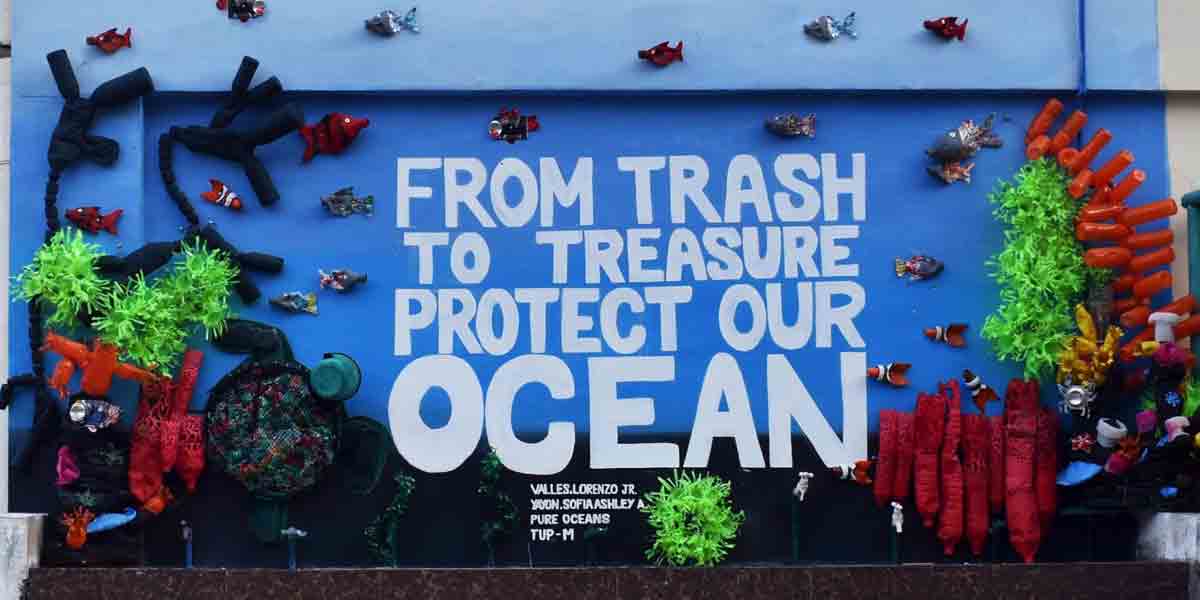
The overwhelming amount of plastic waste generated by the world has opened the doors to criminal networks. A new INTERPOL report has revealed rising crime in the global plastic waste sector linked to illegal trade and illegal waste treatment. Illegal shipments have been detected in transregional and intraregional plastic waste trade routes. This has prompted the World Wide Fund for Nature (WWF) to call for global action by governments, law enforcement agencies, businesses and consumers.
INTERPOL has highlighted the infiltration of criminal networks in the plastic waste trade, through the illegal re-rerouting of shipments and unauthorised waste management methods. The scale of plastic waste mismanagement is far-reaching, involving at least 52 out of the 257 trade routes analysed by INTERPOL.
“Waste crime is a rising threat with roots in a more fundamental problem: the inability to manage our plastic use and production. We are witnessing the impacts of plastic pollution on marine ecosystems and now, the criminal implications of it. Systemic change and greater accountability is the only way to tackle a crisis that transcends national borders. We call on world leaders to come together for a comprehensive treaty to address marine plastic pollution,” said Eirik Lindebjerg, Global Plastics Policy Manager, WWF-International.
For decades, China was an easy solution for countries’ plastic waste, receiving half of the world’s plastic waste[1]. Following its move to restrict plastic waste imports in 2018, the re-routing of shipments has overwhelmed alternative countries, opening the doors for opportunistic crime.
Developing Asian countries, especially those with limited waste management and enforcement capacities, are increasingly targeted. In May 2020, Malaysia initiated the costly and extensive process of repatriating 3,737 metric tons of plastic waste – equivalent to 150 shipping containers – to 13 different countries of origin.
International measures on globally traded plastic waste are set to take place from 2021 under the Basel Convention. Nevertheless, INTERPOL has highlighted the need to increase waste enforcement, as criminals have shown to be able to exploit changes in regulation to their advantage in the past couple years.
“Global plastic pollution is one of the most pervasive environmental threats to the planet today, and its correct regulation and management is of critical importance to global environmental security,” said the Chairperson of INTERPOL’s Environmental Compliance and Enforcement Committee Advisory Board, Calum MacDonald, who is also the Executive Director of the Scottish Environmental Protection Agency (SEPA).
Following INTERPOL’s call for enhanced international and inter-agency law enforcement cooperation, WWF has outlined a series of further recommendations required in an international response by governments.
- a) Accelerate negotiations for a global legally binding agreement with clear national action plans and regulations, including support for waste management in low income countries.
- b) Reinforce existing mechanisms such as phase out of single use plastics, improving domestic recycling capacity in developed markets and addressing gaps in waste management in developing economies.
- c) Innovate and scale up environmentally sound alternatives to plastic.
- d) Invest in research and capacity building for enhanced monitoring and enforcement on plastic waste.
Momentum is growing for a comprehensive global framework to address plastic pollution at its source. Almost 2 million people around the world have signed a WWF petition urging their governments to establish a legally binding global treaty to address marine plastic pollution and 133 countries have already voiced their support for exploring the option of a global agreement.





















